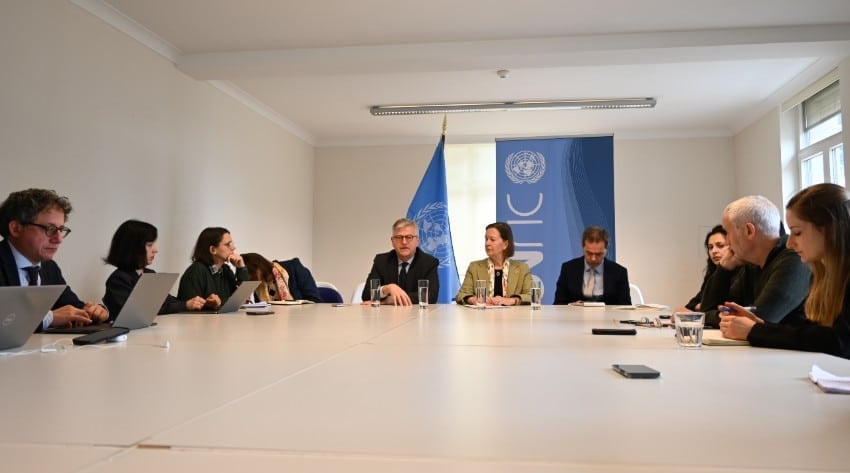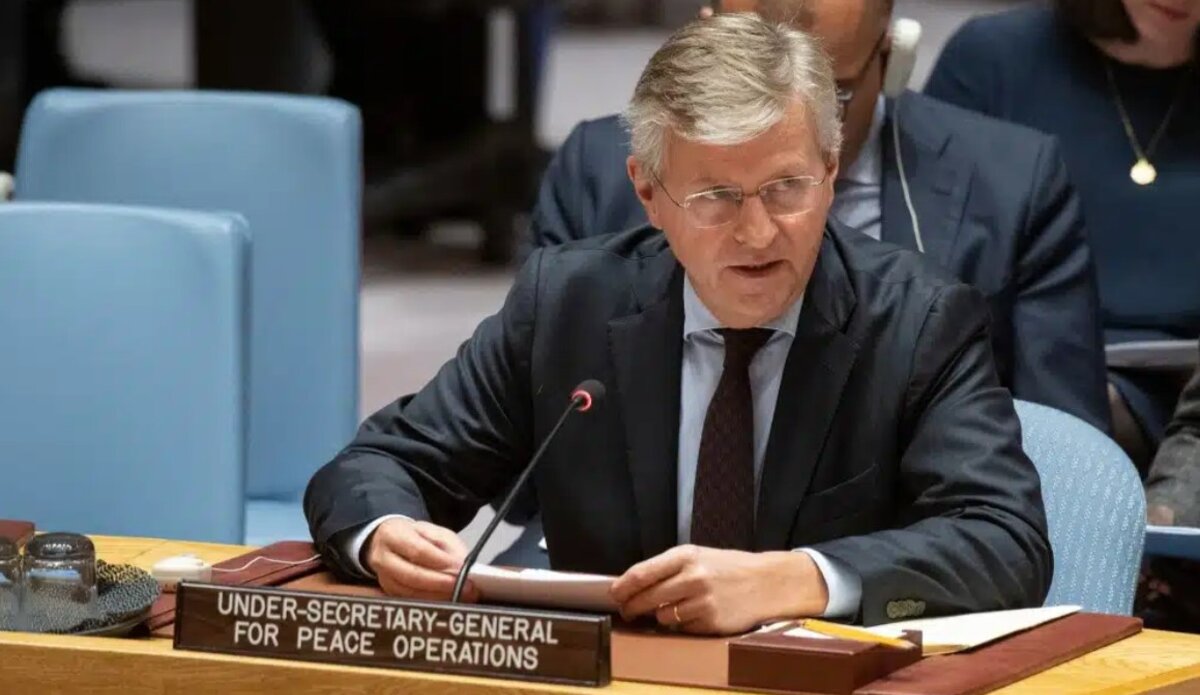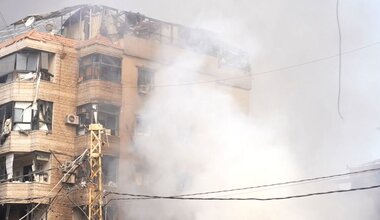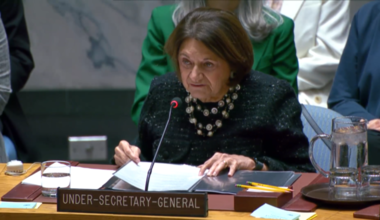Peacekeeping: the current challenges, explained by Jean-Pierre Lacroix
“The European Union and its member states are very important partners for the UN as a whole and for peacekeeping in particular, in many different ways. With the EU we have a close cooperation including on the ground. Most EU member states are troops or police contributors to peacekeeping, and they account for a very important share of the financial contribution to the regular UN budget and peacekeeping”.
Briefing the journalists in Brussels, Jean-Pierre Lacroix, Under-Secretary-General for Peace Operations, gave in his introduction an overview of the peacekeeping operations and challenges.
“The key challenge: a divided international community”
“There are 11 Peacekeeping Operations today, diverse in terms of their size and mandates”, explained Jean-Pierre Lacroix. “Some operations are monitoring a ceasefire like in Cyprus, and some have a broader mandate and bigger operations, for instance in the Central Africa Republic (CAR) and South Sudan.
The key challenge is that we have a divided international community, a divided membership, a divided Security Council. The space the UN has to act on peace and security depends on the appetite of our member states for multilateral responses to crises. If competition prevails over the desire to go for multilateral responses to crises, then of course the space for the UN is limited. ” This division affects everything the UN does on peace and security, but it doesn’t mean there is no space at all.

© UN / Ula Wojciechowska
The role of the Security Council in peacekeeping
“We have that division and paralysis across the membership, including the Security Council, but it doesn’t mean the Security Council is paralysed all the time. Otherwise, our mandates would not be extended as they are regularly. But it means that the peacekeeping operations have less united and strong political support from member states, and we see that quite clearly.
More importantly, since every peacekeeping operation is created to support a political process and political efforts, if the member states, if the Security Council, if those with influence are not actively and in a united manner pushing the parties to any political process to move forward and to implement their commitments, then those political processes are much less likely to move forward.”
Lingering political crises
“We see the difference with 20 or 30 years ago, when we had real successes with the support of peacekeeping in places like Timor Leste, Liberia, Côte d’Ivoire, or Cambodia. The parties essentially played the game, they were strongly encouraged if not pressured by a united international community to do this. Once it was done the peacekeeping operation would leave. That is not the case any more.”
“The political processes in all the places where peacekeeping is operating are very slow in their progress at best, and in some cases they just don’t move or are eroding. That leaves us with situations where instead of having a prospect for an an overall success, and leaving behind a much improved situation, what we do is very much damage control, or preventing resumption of hostilities, or saving people, protecting the civilians.
All of this is very important, but we have a situation where the added value has become counter-factual: if you remove the peace operation, what happens? As opposed to political processes moving, prospects for exiting successfully within a few months or a few years”.
The added value of peacekeeping operations
“The added value of peacekeeping operations cannot be minimised. In some cases if you remove those operations, you would end up with much higher chances for relapse, fragile situations becoming totally chaotic. (…)
I keep saying that every single day: hundreds of thousands of civilians are protected directly, even in places such as the Democratic Republic of Congo (DRC)as we speak, by peacekeepers and in many cases by peacekeepers alone – no one else is doing it.”
Evolving nature of conflicts and a liquidity crisis
“On top of that, we have the evolving nature of conflicts with the growing influence of transnational criminal activities, climate change, proliferation of armed groups with no political purpose – it’s very difficult to engage because they are interested in chaos rather than any political solution. We are confronted with the resurgence of private security companies, in different forms. The evolving technologies create opportunities for us but also pose additional threats, including misinformation – not something new but has acquired a new magnitude with the help of the new technologies.
We also have a liquidity crisis. (…) This year, from July 2024 to June 2025, we have 5. 6 billion dollars for all peacekeeping operations, which is a lot of money, but much less than the annual budget of police departments of most big cities (…) One thing is to have the budget approved, another is to have the liquidity with member states paying in full and on time. This is not happening. We have a shortage of liquidity – so we are basically capping what we can spend”.
Jean-Pierre Lacroix concluded his presentation with the efforts made by members states, still supportive of peacekeeping, about the future of the operations. An important meeting will take place in Berlin in May at a ministerial level on the future of peace operations. “Questions on the key challenges mentioned and what could be new operations will emerge”, he said.
Additional links:
For more information on the UN-EU partnership on peace and security and specifically the UN-EU partnership on peacekeeping and crisis management, please visit https://unlops.unmissions.org/.
 UN
UN





